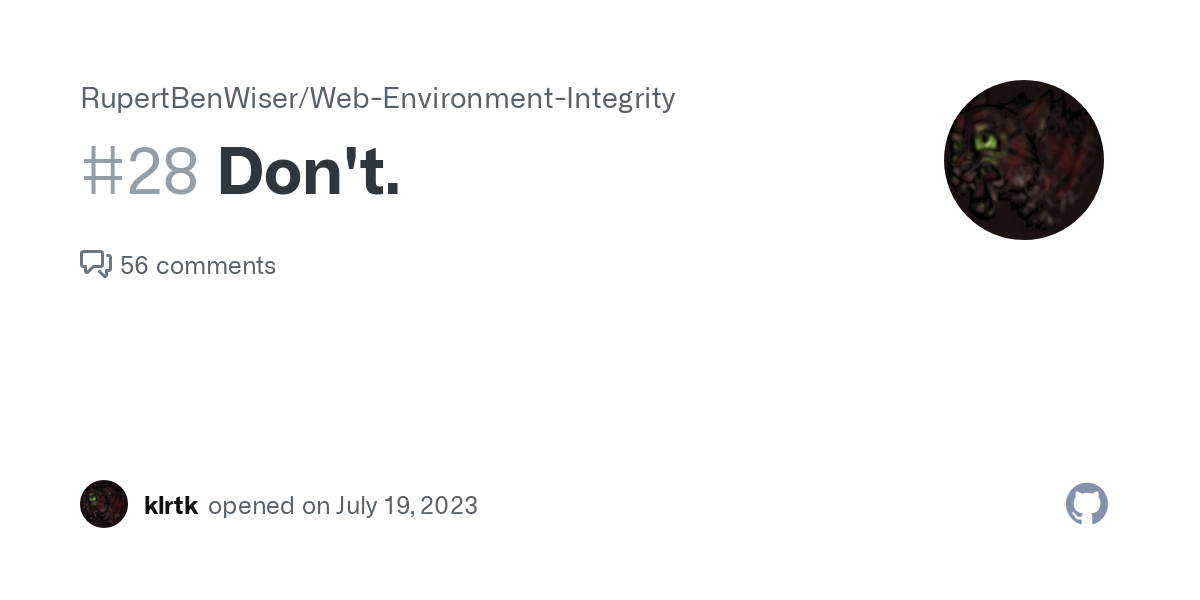- cross-posted to:
- privacy@monero.town
- cross-posted to:
- privacy@monero.town
the API is called Web Environment Integrity, and it’s a way to kill ad blockers first and a Google ecosystem lock-in mechanism second, with no other practical use case I can find



if anyone hasn’t read it yet, the goals and non-goals sections of the “explainer” are a joke that mostly contradict the rest of the document, and seem like a late addition to muddy the waters in online discussions when they realized how unpopular this idea would be. the entire thing gives me crypto whitepaper vibes in that it’s an intentionally dishonest representation of a technology nobody but google wants
also, the actual spec isn’t even a first draft, almost like other browser vendors supporting or even understanding this thing is an unlisted non-goal. it’s much worse if they do though: implementing this thing requires your browser to keep a connection to a google-approved attester, which will receive a live feed of the requests leaving your browser; ie, it’ll have your live browsing history. for some reason (by design), when the explainer talks about cross-site tracking, it only talks about methods to prevent the web server from doing it, other than this paragraph of nonsense:
only a couple of paragraphs before this, the doc describes what the attester receives and signs as a “content binding”, which… seems to be a set of browsing information for the page you’re on
e: oh yeah, that’s one of the only places they mention the concept of a token issuer at all. they don’t actually describe what it is, and I can’t figure out the value of splitting it from the attester if the token has to contain your browsing data — either way, both systems get a copy of it
They are doing their best to make Chrome actual malware.
I couldn’t read past the example scenarios in the introduction. I read “bad actors” and it’s enough to know that they are avoiding thinking, or at least talking, about the realities of what they are making.